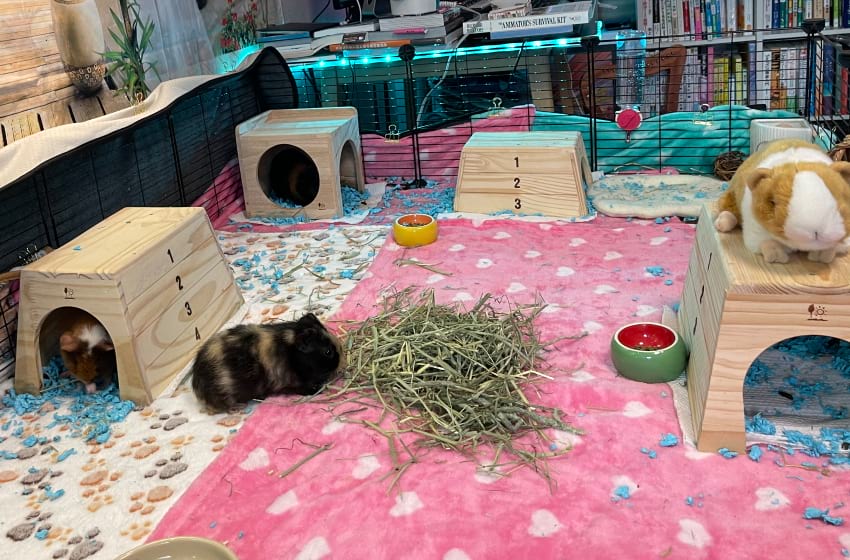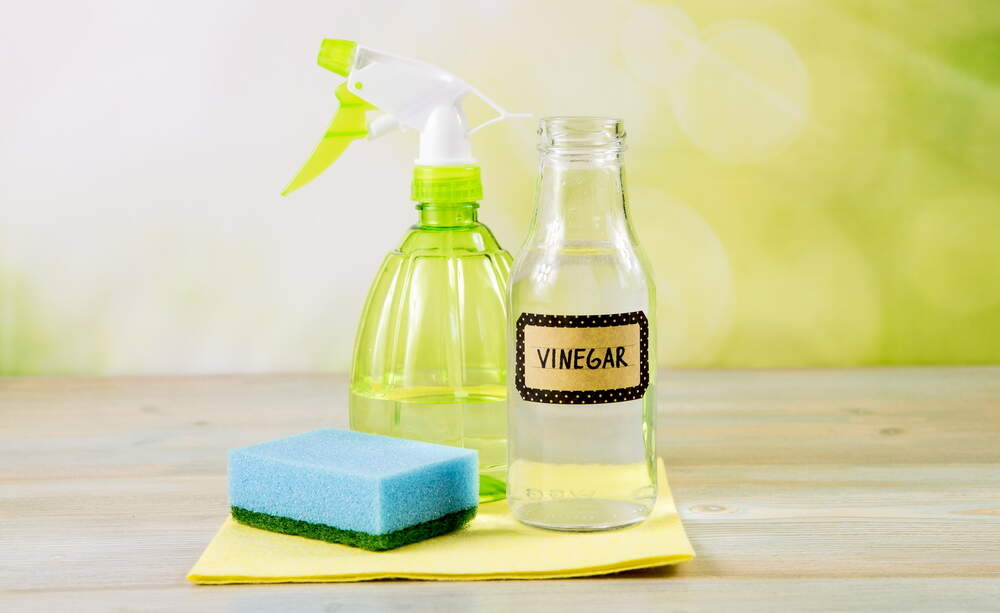Reducing our carbon footprint can be challenging, especially when we have pets. While guinea pigs have a lower impact compared to meat-eating animals like cats or dogs, they still produce a significant amount of waste. Let’s explore ways to make guinea pigs more environmentally friendly pets.
One of the most effective ways to make guinea pigs eco-friendly is by minimizing the items we purchase for them. Opt for reusable bedding such as fleece liners, buy white vinegar in bulk for a simple homemade cleaning solution, and avoid buying unnecessary items for your pets.
This article will delve into more tips and tricks to maintain an eco-friendly approach while ensuring the well-being of your guinea pigs.
1. Purchase Reusable Bedding

If you’re currently using disposable bedding, consider switching to reusable options like fleece liners or bath mats. These can withstand multiple washes before needing replacement, making them a more sustainable choice in the long run.
While reusable bedding may have a higher initial cost, it proves to be more economical over time. You can also save money by purchasing fleece from thrift stores to create your own liners or opting for affordable chenille bath mats.
2. Don’t Buy More Than You Need
To enhance eco-friendliness, avoid unnecessary purchases for your pets. Stick to a minimal number of liners and cage accessories that can be washed and reused. Choose a cohesive color scheme and steer clear of seasonal items unless they are used year-round.
3. Use Natural Cleaning Products

Opt for a natural cleaning solution using water and white vinegar, which is not only effective but also safer for your guinea pigs’ respiratory health. Avoid scented cleaners that can potentially harm your pets, especially considering their susceptibility to respiratory issues.
For laundry purposes, choose unscented and sensitive skin-friendly detergents. If possible, opt for eco-friendly or plastic-free brands to further reduce environmental impact.
4. Avoid Plastic Items
Plastic items contribute significantly to environmental pollution as they do not biodegrade easily. Instead of plastic accessories, opt for wooden hideouts and toys made from natural materials like willow or grass hay. Ensure that all materials used are safe for your guinea pigs and avoid anything treated with harmful chemicals.
5. Reuse Household Items

Repurpose household items to create toys and accessories for your guinea pigs. Items like toilet paper rolls, paper towel rolls, and egg cartons can be filled with hay or pellets to provide enrichment activities. Old towels can be used to cover parts of the cage for added comfort and security.
Get creative with reusing items to enhance your guinea pigs’ living environment, ensuring everything is safe for their well-being.
6. Buy Second Hand
Consider purchasing gently used guinea pig items from local sources or online platforms. Many pet owners offer items for free or at affordable prices after their pets outgrow them or are rehomed. Ensure to clean and sanitize second-hand items before introducing them to your guinea pigs.
Buying second-hand items not only promotes sustainability but can also save you money in the long run.
7. Buy Local Produce–Or Grow Your Own!

Reduce emissions from transportation and support local businesses by purchasing local produce for your guinea pigs. Consider growing your own vegetables, herbs, or grass to provide fresh and sustainable food options for your pets.
If you’re new to gardening, start with easy-to-grow plants like lettuce and herbs, or seek established plants from local nurseries to kickstart your guinea pigs’ homegrown treats.
8. Look for High-Quality Items
Investing in high-quality guinea pig items may require a higher initial cost but pays off in durability and longevity. Opt for items that are built to last, reducing the need for frequent replacements. Quality items can serve multiple generations of guinea pigs, making them a sustainable choice in the long term.
9. Compost Your Guinea Pigs’ Waste
Convert your guinea pigs’ waste, including poop, hay, and certain bedding types, into compost to minimize landfill waste. Instead of using plastic garbage bags, consider composting their waste to create nutrient-rich soil for your garden or yard.
Alternatively, establish a compost pile or directly incorporate the waste into your garden to promote natural decomposition over time.
By implementing these eco-friendly practices, you can reduce your guinea pigs’ carbon footprint and create a more sustainable environment for your beloved pets. Every small change contributes to a greener future!

